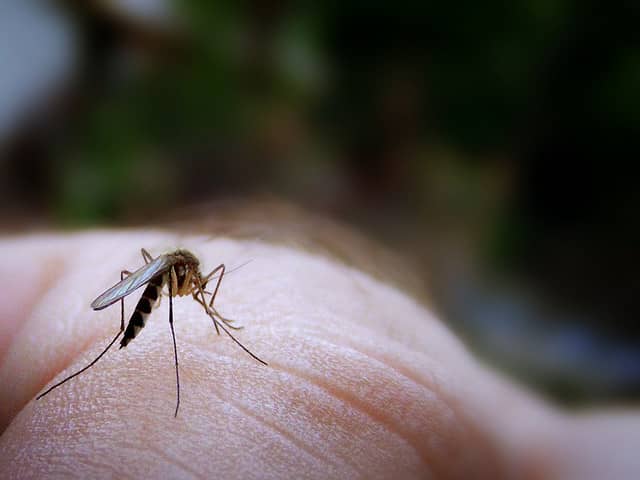New Jersey Urges Residents to Take Precautions Against Mosquitoes
OutdoorHub 09.20.11

The Department of Environmental Protection and Department of Health and Senior Services are urging State residents to take precautions to protect themselves from mosquito-borne West Nile virus by taking some simple steps to reduce populations of the insect on their own properties.
Late summer and early fall are typically the most critical times of the year to be aware of the potential for the dangers of contracting West Nile virus from mosquito bites. Mosquito activity can continue until late October. Mosquitoes also can become more active throughout the entire day at this time of year.
Concerns are elevated this year because many areas of the State are still wet as a result of excessive rainfall over the late summer resulting largely from Hurricane Irene and Tropical Storm Lee. Wet areas serve as breeding grounds for mosquitoes.
In response, the State has stepped up its air surveillance of potential mosquito breeding grounds and aircraft pesticide applications to proactively reduce the threat of impacts to people. The state also has been working closely with county mosquito control programs to help them identify and respond to mosquito outbreaks in a timely manner.
“Given the record rainfall and large amounts of standing water, it is extremely important that residents follow personal protective measures, including using insect repellent when outdoors, limiting time outdoors when mosquitoes are most active, and wearing protective clothing during these hours,” said DHSS Acting Commissioner Dr. Tina Tan.
DHSS has identified four human cases of West Nile virus so far this year, with no fatalities. They were in Mercer, Middlesex, Morris and Ocean counties. The Morris County exposure to West Nile virus occurred outside of New Jersey. DHSS also reported that 25 birds have died from confirmed cases of West Nile virus in Gloucester, Monmouth, Morris, Ocean, Somerset and Warren counties.
Last year, there were 30 human case of West Nile virus in New Jersey, including two deaths.
“Fortunately confirmed cases of West Nile Virus in New Jersey remain low this year,” said Bob Kent, Administrator of the DEP’s Office of Mosquito Control Coordination. “Still, it is prudent to take steps around your own home to keep mosquito populations – and health risks – in check.”
The DEP offers the following tips on how to limit mosquitoes on your property:
- Dispose of tin cans, plastic containers, ceramic pots or similar water-holding containers that have accumulated on your property.
- Pay special attention to discarded tires that may have accumulated. The used tire has become the most important domestic mosquito producer in this country.
- Drill holes in the bottom and elevate recycling containers that are left out of doors.
- Clean clogged roof gutters on an annual basis, particularly if the leaves from surrounding trees have a tendency to plug up the drains. Roof gutters are easily overlooked but can produce millions of mosquitoes each season.
- Turn over plastic wading pools when not in use. A wading pool becomes a mosquito producer if it is not used on a regular basis.
- Turn over wheelbarrows and do not allow water to stagnate in bird baths.
- Aerate ornamental pools or stock them with fish. Water gardens are fashionable but become major mosquito producers if they are allowed to stagnate.
- Clean and chlorinate swimming pools that are not being used. A swimming pool that is left untended can produce enough mosquitoes to result in neighborhood-wide complaints. Be aware mosquitoes may even breed in the water that collects on pool covers.
- Use landscaping to eliminate standing water that collects on your property. Mosquitoes will develop in any puddle that lasts more than four days.
- Maintain mechanical barriers, such as window and door screens, to prevent mosquitoes from entering buildings. Barriers over rain barrels or cistern and septic pipes will deny female mosquitoes the opportunity to lay eggs on water.
- If you have problems controlling mosquitoes, contact your county mosquito control agency by calling 888-666-5968.
For more DEP information visit:
Visit the State Department of Health and Senior Services:
www.state.nj.us/health/cd/westnile

